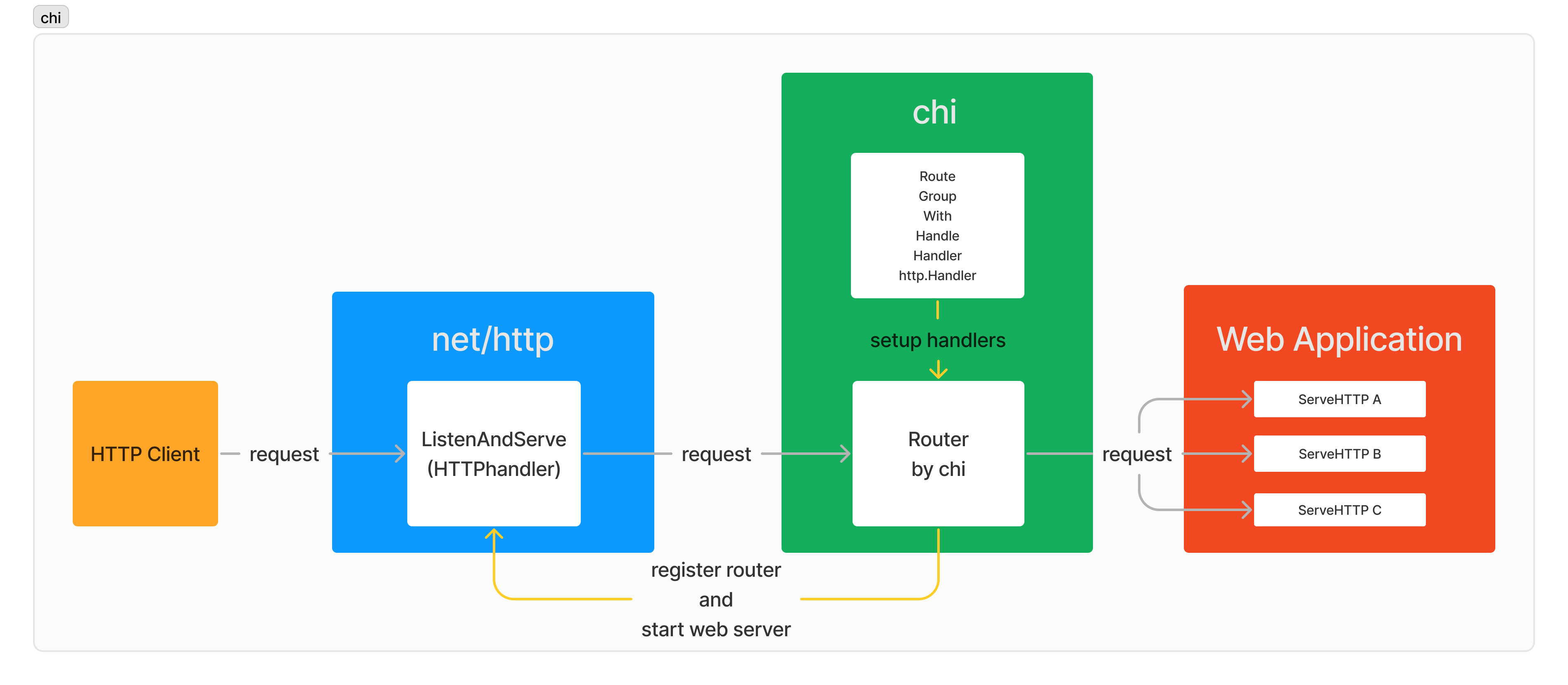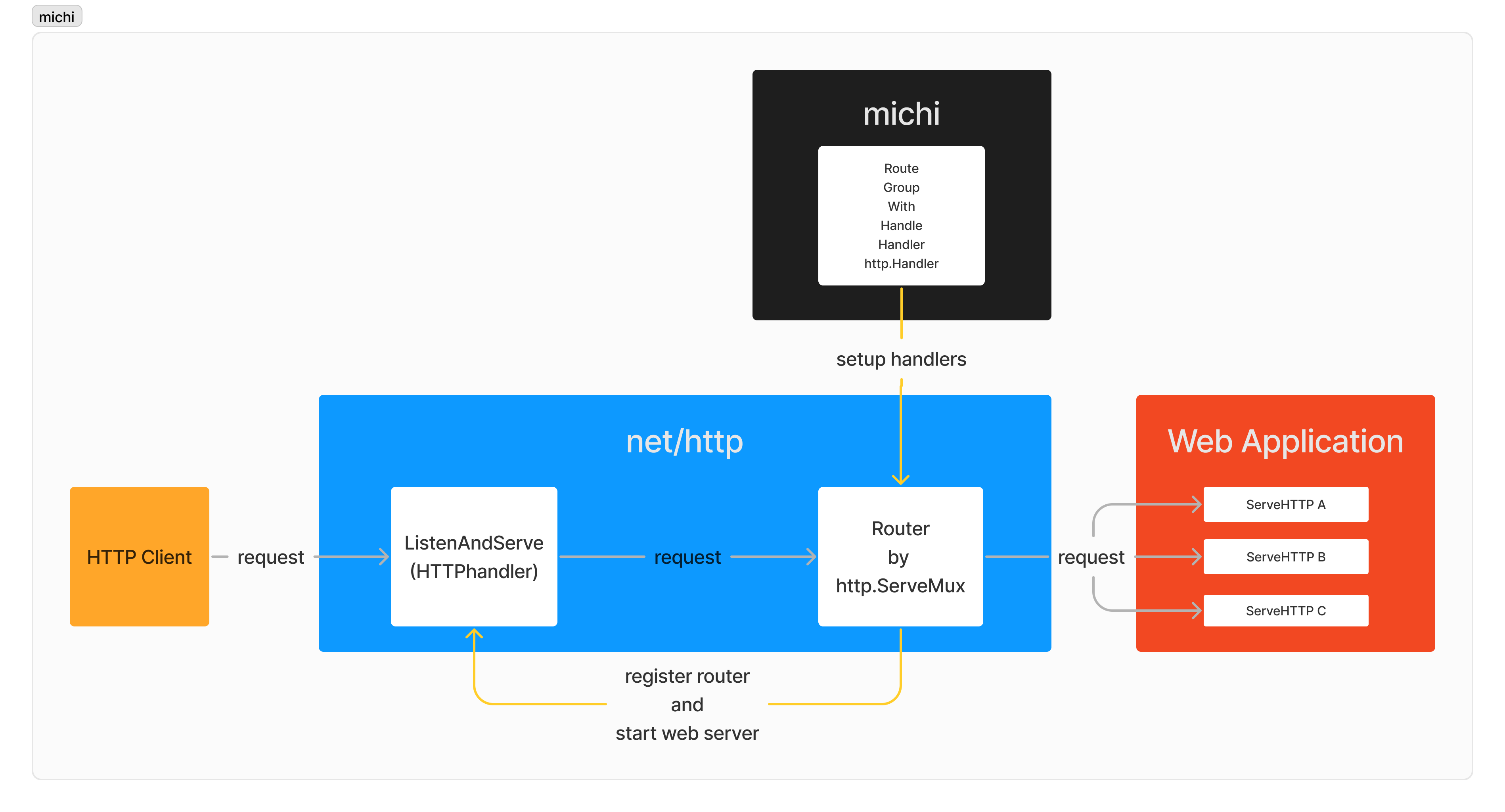 Documentation
¶
Documentation
¶
Overview ¶
Example ¶
package main
import (
"fmt"
"net/http"
"net/http/httptest"
"github.com/sonatard/michi"
)
func main() {
handler := func(name string) http.Handler {
return http.HandlerFunc(func(w http.ResponseWriter, r *http.Request) {
fmt.Println(name + " handler")
})
}
middleware := func(name string) func(next http.Handler) http.Handler {
return func(next http.Handler) http.Handler {
return http.HandlerFunc(func(w http.ResponseWriter, r *http.Request) {
fmt.Println(name + " start")
next.ServeHTTP(w, r)
fmt.Println(name + " end")
})
}
}
rt := michi.NewRouter()
rt.Use(middleware("a"))
rt.Handle("/a", handler("a"))
rt.Route("/b", func(rt michi.Router) {
rt.Use(middleware("b"))
rt.Handle("", handler("b"))
rt.With(middleware("c1")).Handle("/c1", handler("c1"))
rt.Group(func(rt michi.Router) {
rt.Use(middleware("c2"))
rt.Handle("/c2", handler("c2"))
})
})
{
w := httptest.NewRecorder()
target := "https://example.com/a"
r := httptest.NewRequest(http.MethodPost, target, nil)
fmt.Println(target)
rt.ServeHTTP(w, r)
fmt.Println()
}
{
w := httptest.NewRecorder()
target := "https://example.com/b"
r := httptest.NewRequest(http.MethodPost, target, nil)
fmt.Println(target)
rt.ServeHTTP(w, r)
fmt.Println()
}
{
w := httptest.NewRecorder()
target := "https://example.com/b/c1"
r := httptest.NewRequest(http.MethodPost, target, nil)
fmt.Println(target)
rt.ServeHTTP(w, r)
fmt.Println()
}
{
w := httptest.NewRecorder()
target := "https://example.com/b/c2"
r := httptest.NewRequest(http.MethodPost, target, nil)
fmt.Println(target)
rt.ServeHTTP(w, r)
fmt.Println()
}
}
Output: https://example.com/a a start a handler a end https://example.com/b a start b start b handler b end a end https://example.com/b/c1 a start b start c1 start c1 handler c1 end b end a end https://example.com/b/c2 a start b start c2 start c2 handler c2 end b end a end
Index ¶
Examples ¶
Constants ¶
This section is empty.
Variables ¶
This section is empty.
Functions ¶
This section is empty.
Types ¶
type Option ¶
type Option func(*router)
Option is the option for router
func ExecTrailingSlashHandlerOption ¶
func ExecTrailingSlashHandlerOption() Option
ExecTrailingSlashHandlerOption is the option for router. Execute the handler when the url path has no trailing slash.
type Router ¶
type Router interface {
// Handler has ServeHTTP(ResponseWriter, *Request)
http.Handler
// Use adds middlewares to the router
Use(middlewares ...func(http.Handler) http.Handler)
// With creates a sub router with the given middlewares
With(middlewares ...func(http.Handler) http.Handler) Router
// Group creates a sub router with the given sub router function
Group(fn func(sub Router))
// Route creates a sub router with the given sub router function and path pattern
Route(pattern string, fn func(sub Router))
// Handle registers a handler for the given pattern
Handle(pattern string, handler http.Handler)
// HandleFunc registers a handler function for the given pattern
HandleFunc(pattern string, handlerFunc http.HandlerFunc)
}
Router is a http.Handler which can be used to dispatch requests to different
Click to show internal directories.
Click to hide internal directories.




